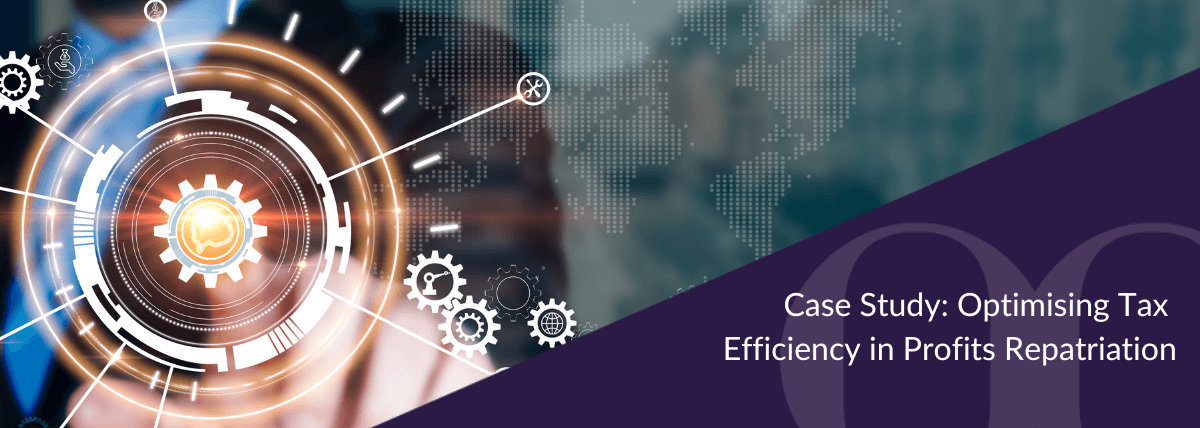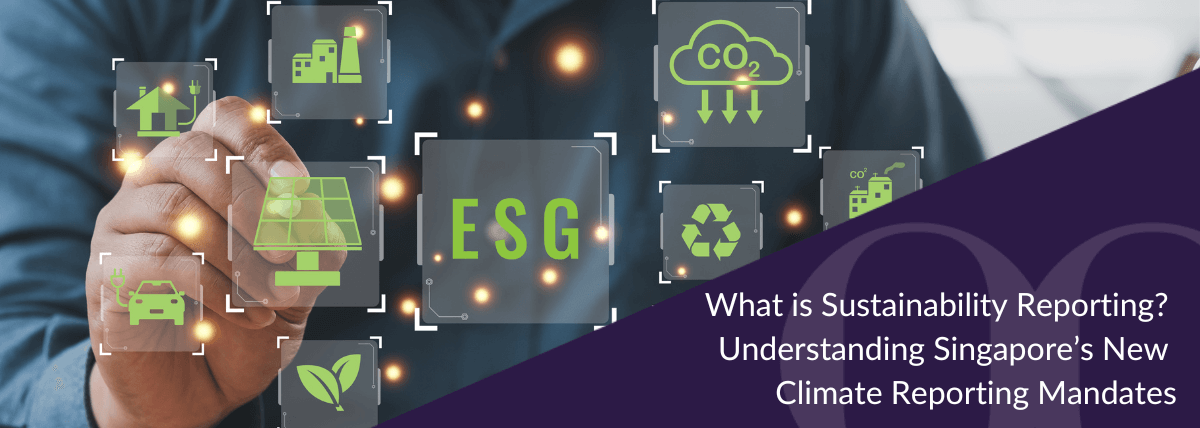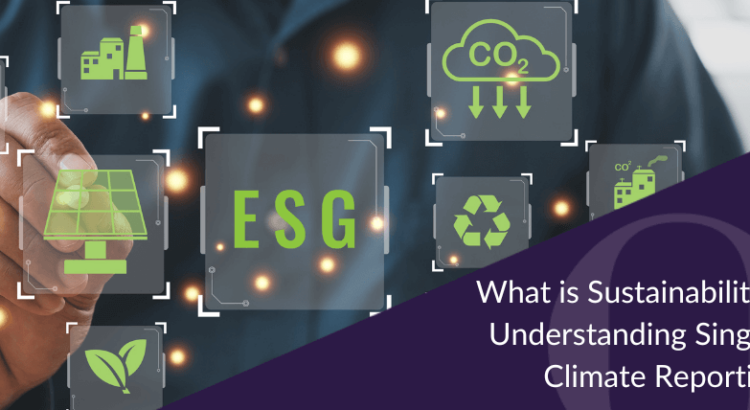Sustainability reporting in Singapore has evolved significantly over the past few years, particularly with the introduction of mandatory climate reporting requirements for both listed and large non-listed companies. This transition from voluntary to compulsory reporting is part of a broader effort to enhance corporate governance and environmental accountability.
As businesses contend with these changes, it becomes crucial to understand the new regulations and their implications. Tina Thomas, Head of ESG at BoardRoom Group, emphasises the importance of sustainability reporting: “Sustainable reporting has become very important for businesses. From a compliance perspective, most jurisdictions around the world have imposed mandatory reporting requirements by 2025.”
Businesses based in Asia often form an integral part of global supply chains. Tina says that customers are now requesting many Asian-Pacific companies to start reporting on Environmental, Social, and Governance (ESG) data at a local level, highlighting the need for comprehensive ESG reporting regardless of company size.
This article explains what sustainability reporting is and why it is required, offering practical insights into its significance. We’ll also explore the benefits and challenges to help your business achieve compliance.
The Sustainability Reporting SGX Deadline
The move from voluntary to mandatory climate reporting marks a major shift in regulatory protocol. Previously, companies could choose whether to disclose their environmental impact. Now, the Singapore Exchange (SGX) requires all listed companies to comply with new sustainability reporting guidelines by a specific deadline. The SGX has been proactive in this area, setting clear timelines for compliance, as outlined on its sustainability reporting page.
Tina explains the gravity of this shift: “Most companies, especially small to medium enterprises (SMEs), are not really prepared. The level of preparedness varies, based on the type of company and its market capitalisation. Many have not even started thinking about climate much because they have not been questioned by their boards”.
The absence of preparation among these companies and the ongoing question of ‘what is sustainability reporting?’ highlights the need for increased awareness and readiness to meet these new requirements.
What is the Purpose of Sustainability Reporting?
It is important for all companies to understand that mandatory reporting extends beyond mere compliance. It signifies a broader commitment to corporate governance and environmental stewardship, reaffirming that ESG is a top priority for your business. Companies now need to integrate sustainability into their business strategies and decision-making processes, ensuring they meet the expectations of regulators, investors and other stakeholders.

The Advantages and Disadvantages of Sustainability Reporting
Sustainability reporting offers several benefits to companies, including enhanced transparency, improved investor trust and better risk management. By disclosing your environmental impact, your company can demonstrate your commitment to sustainability, improving your reputation and attracting socially conscious investors. “Younger generations make a lot of decisions based on how sustainable the business is and how they treat their employees,” Tina advises. “This transparency is just another reason why sustainability reporting is important.”
However, implementing sustainability reporting also presents challenges. Companies must invest in new systems and processes to collect and report data accurately. This process can be costly and resource-intensive, particularly for SMEs. Tina acknowledges these challenges but also offers the following advice. “Right now, it’s about understanding what your company needs to do, especially in relation to climate. There’s an expectation that you understand what your carbon footprint is, what your hotspots are, and how you can reduce carbon emissions. From there, what sort of initiatives can you take in terms of carbon offsets or decarbonisation strategy? I think the main challenges are understanding first, what sustainability reporting is and second, what needs to be done. Compliance requirements are still in the early stages, so getting a good understanding of what you need to do and communicating that with your staff is essential.”
To understand the advantages and disadvantages of sustainability reporting, as well as why sustainability reporting is important, you need to establish or outsource a dedicated ESG task force team. They’ll be able to oversee data collection, ensure compliance with regulatory requirements and communicate the company’s sustainability efforts to stakeholders. Additionally, investing in training and technology can help streamline the reporting process and reduce costs over time.
Sustainability reporting will also provide insights that can help you gain a competitive advantage and become an industry leader. “It is imperative to keep up to date with what is happening, especially regulatory changes, and be prepared to move quickly as compliance requirements evolve,” Tina says.
How to Implement Sustainability Reporting
Complying with the new sustainability reporting regulations requires a systematic approach. The Task Force on Climate-related Financial Disclosures (TCFD) provides a framework that companies can use to enhance their climate-related reporting. This TCFD summary includes guidelines on governance, strategy, risk management, metrics and targets.
Tina recommends that companies start collecting data and use the right tools to do so. “The SGX has a minimum set of data that every business has to collect, which includes 27 core ESG metrics,” Tina explains. This data collection is crucial for understanding the company’s environmental impact and identifying areas for improvement.

What is the TCFD and ISSB?
The TCFD is an international organisation that aims to create a standardised set of climate-related financial risk disclosures. These disclosures are intended for companies and financial institutions to provide clearer information to their investors, stakeholders and the general public about the financial risks they face due to climate change.
While SGX requires listed companies to adopt the TCFD recommendations for climate-related reporting, it is also aligning with the International Sustainability Standards Board’s (ISSB) efforts to create a global baseline for sustainability disclosures. In March 2024, Singapore Exchange Regulation (SGX RegCo) launched a consultation on how the ISSB standards are to be incorporated into its sustainability reporting rules for climate-related disclosures.
In order for companies to comply with the reporting standards, they first have to understand their climate risks and opportunities. BoardRoom can help with conducting climate risk assessment workshops and drafting sustainability and climate reports according to TCFD and ISSB standards, including TCFD summary, TCFD disclosure examples and TCFD training. BoardRoom can also assist companies with funding applications from Enterprise Singapore.
Funding and Grant Support from Enterprise Singapore
Enterprise Singapore offers funding and grants to support companies in their ESG journey, such as the Enterprise Development Grant (EDG) which provides support for projects aimed at upgrading, innovating, growing, and transforming your business. There is a small window for companies to take advantage of this grant. From 1 April 2023 to 31 March 2026, under the EDG, small and medium-sized enterprises (SMEs) can receive up to 70% support for sustainability-related projects. EDG covers eligible project costs, including third-party consultancy fees, software and equipment expenses, and internal manpower costs.
As a Registered Management Consultant (RMC) with Enterprise Singapore, Tina emphasises, “Navigating climate-related challenges and opportunities requires not just compliance but strategic foresight. Our goal is not just to help companies meet the reporting standards, but also access funding to drive impactful climate initiatives.” This approach ensures that companies enhance their sustainability strategy while securing the financial support needed for their climate goals.

Compliance for a Brighter Future
The introduction of mandatory climate reporting in Singapore represents a significant step towards enhanced corporate responsibility and environmental accountability. As businesses adapt to these new regulations, it is essential to understand the benefits and challenges of sustainability reporting and take proactive steps to achieve compliance.
Tina summarises the transition: “Sustainability reporting is not just about compliance; it’s about doing things ethically and morally. It’s a cultural shift in how we make decisions.”
By embracing sustainability reporting, you will not only meet regulatory requirements but can also enhance your reputation, build investor trust and contribute to a better and more sustainable future.
To discover more about sustainability reporting and how BoardRoom can help, get in touch with the team today.
Contact BoardRoom for more information:
Related Business Insights
-

17 Oct 2024
Payroll Best Practices: Your Guide To Financial Services Payroll Management
Effective payroll management in financial institutions is key to compliance and risk reduction. Find out what you c …
READ MORE -

07 Oct 2024
Your Guide to Global Mobility Tax Solutions
Discover ways to navigate tax and compliance when working with international assignments with global mobility tax s …
READ MORE -

06 Sep 2024
Case Study: Optimising Tax Efficiency in Profits Repatriation
Discover how BoardRoom's two-step tax approach helps a multinational conglomerate evaluate tax-efficient profit rep …
READ MORE


